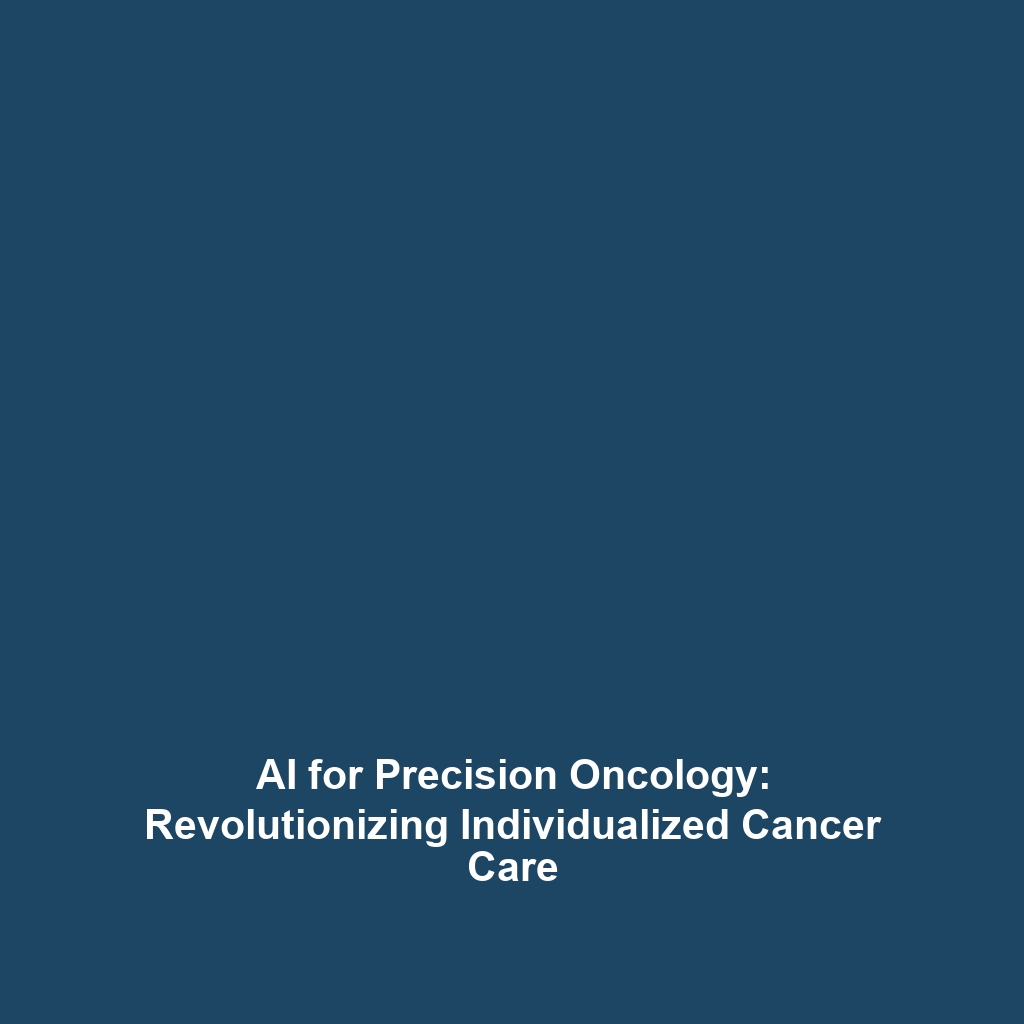AI for Precision Oncology: Individualized Cancer Treatment
Introduction
AI for precision oncology represents a groundbreaking approach in the fight against cancer, where artificial intelligence technologies are harnessed to tailor treatment plans to individual patients. This personalized approach is significant within the broader context of AI in healthcare, as it has the potential to improve patient outcomes, reduce costs, and optimize treatment efficiency. By integrating genetic, lifestyle, and clinical data, AI systems can predict how patients will respond to specific therapies, ushering in a new era of individualized care.
Key Concepts
Understanding key concepts is crucial for grasping the role of AI in precision oncology. Here are core principles:
- Data Integration: AI systems amalgamate vast datasets, including genetic profiles and treatment histories, to provide personalized insights.
- Predictive Analytics: Utilizing machine learning algorithms, AI can predict treatment responses and potential side effects, leading to better-informed clinical decisions.
- Targeted Therapies: AI facilitates the development of targeted therapies that specifically combat individual tumor characteristics, enhancing treatment effectiveness.
- Continuous Learning: AI models evolve through ongoing data collection, improving their predictive accuracy over time.
Applications and Real-World Uses
The application of AI for precision oncology is transforming cancer treatment as follows:
- Genomic Sequencing: AI algorithms analyze genomic data to identify mutations and recommend specific therapeutic targets.
- Radiology and Imaging: AI applications in radiology enhance image analysis for tumor detection and treatment planning.
- Clinical Decision Support: AI systems provide oncologists with evidence-based recommendations tailored to individual patient profiles.
- Drug Discovery: AI accelerates drug discovery by predicting which molecules are likely to succeed in clinical trials for various cancer types.
Current Challenges
Despite its transformative potential, AI for precision oncology faces several challenges, including:
- Data Privacy: The extensive use of sensitive patient data raises ethical and legal concerns regarding privacy and consent.
- Integration into Clinical Workflows: Incorporating AI-generated insights into existing healthcare systems can be logistically complex.
- Interpretability: Many AI models operate as “black boxes,” making it difficult for clinicians to interpret AI-generated recommendations.
- Regulatory Hurdles: Navigating the regulatory landscape poses challenges for the approval and implementation of AI solutions in oncology.
Future Research and Innovations
Looking ahead, several exciting innovations in AI for precision oncology could transform patient care:
- Next-Gen Genomics: Advancements in genomics will enable AI systems to analyze increasingly complex datasets for better treatment predictions.
- Hybrid AI Models: Combining conventional statistical methods with deep learning can enhance the accuracy of predictive analytics.
- Real-Time Monitoring: Wearable technologies may provide real-time patient data, allowing AI systems to continuously update treatment regimens.
Conclusion
The role of AI for precision oncology in transforming cancer treatment is undeniable. By enabling individualized approaches to patient care, AI enhances the effectiveness of interventions and optimizes clinical outcomes. Continued research and innovation in this field will garner greater insights into its applications and ensure that AI in healthcare evolves to meet future challenges.
For further reading on related topics, explore our articles on AI in Healthcare and Precision Oncology Innovations.
